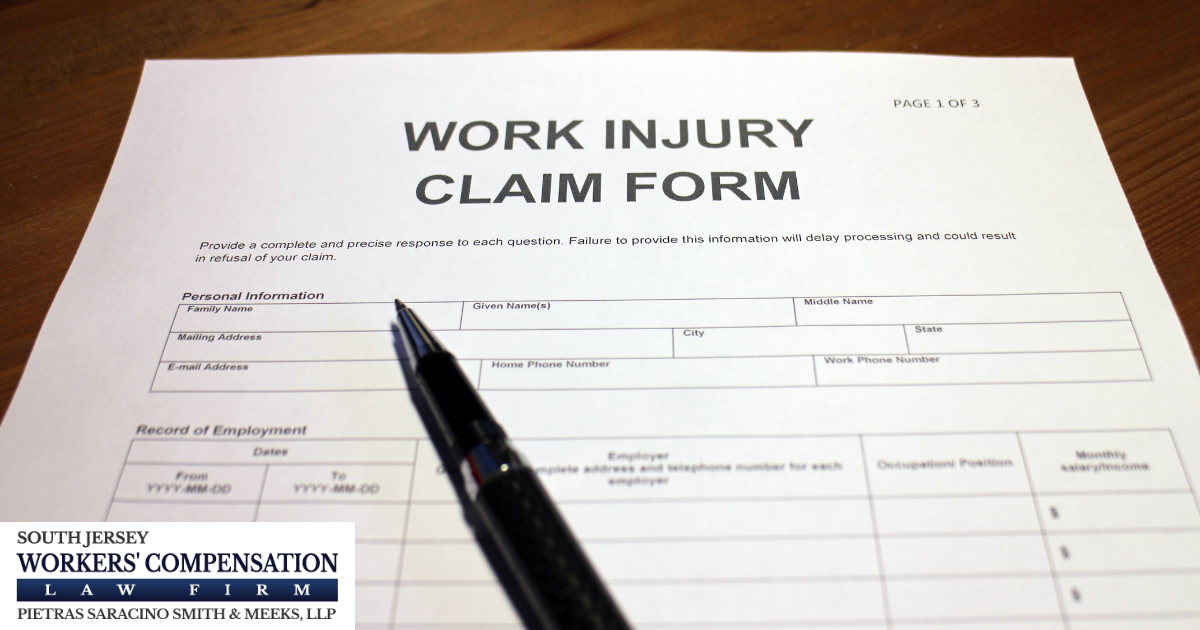It can be very distressing to receive a correspondence explaining that your workers’ compensation claim has been denied. Although there are legitimate reasons why insurance providers initiate denials, they can and will wrongly deny claims. Wading through what happened can be complicated and time-consuming, and exceptionally challenging for people who are dealing with serious workplace injuries. The reasons for denial can be grouped into certain categories, and state laws will also apply in these cases. Individual circumstances will also apply, but workers should know that an initial denial letter does not guarantee that their claim will never be paid. If your injury was not covered, you have options on how to move forward.
Why Might My Workers’ Compensation Claim be Denied?
Even when employees are injured at their workplaces, they do not automatically qualify for benefits; the insurance provider will need to investigate the claim. If you have willingly deviated from work duties while on the job, the insurer will be quick to point that out. This is an unusual example, but suppose a dental hygienist purchased an electronic cleaning tool online without informing their employer and used it at work. If that tool malfunctioned and injured the hygienist, he or she would probably not qualify for benefits. A more common example is when employees use work vehicles for personal reasons, such as going out to dinner with friends. If this event had no connection to work and there was a collision, this would not be considered a work-related accident.
Unreasonably dangerous activities such as using homemade explosives to demolish part of a building would also disqualify a claimant. This is just one reason why companies have safety policies and procedures in place: to protect their employees and themselves. Using common sense prevents a great majority of workplace accidents. Employees also take personal risks while at work that are not associated with job responsibilities. Therefore, if workers decide to heat up aluminum fool in the employee kitchen’s microwave and get burned, this is a personal, not work-related, risk.
These are not the only reasons why workers’ compensation claims are denied. The company might believe that the injuries are not serious enough to warrant compensation. This falls under the category of employer bias and may include denied claims for injuries such as carpal tunnel syndrome, severe anxiety after a workplace accident, or a major back injury. Sometimes, when injuries are not clearly visible to the observer, the claims are turned down; these injuries can be hard to verify.
Keep in mind that if the employee did not need medical treatment or did not take time off from work, there might be no real need for monetary benefits. It is also important to understand that employees do fake workplace injuries to obtain benefits, so it is in an employer’s and insurance provider’s best interest to investigate their employees’ workers’ compensation claims.
What if I Was Injured When Behaving Inappropriately at Work?
Injuries occurred in workplaces that are inflicted on employees via knowing or willful conduct will not be covered. Examples could include purposely hitting one’s hand with a hammer, carrying another employee on your back, or tossing a football around in the office. Some of these fall under the category of horseplay, but if an innocent bystander gets injured by it, they may be able to get workers’ compensation benefits. Employees who are injured at work while intoxicated will also be denied compensation. However, the employer will have to prove that the worker was in this condition when the accident occurred.
Sometimes employees get injured while participating in company social or recreational activities, such as holiday parties or organized ball games. These situations are complicated, but it may be possible to obtain some benefits. This could all depend on whether attendance was required, and if the activity was an ongoing, regular event.
What Else is Excluded from Workers’ Compensation?
Having preexisting medical conditions may also impact workers’ compensation benefits. Employers and insurance companies are known to deny claims by asserting that the injuries were caused by something such as a heart condition or arthritis, instead of a work-related incident. Another less cut-and-dried situation is when the injuries occur when the employee is off-site. In these cases, the employee’s injuries will be covered only if they were carrying out activities that benefited the employer.
Off-site injuries could be covered if the employee was traveling between two work sites, such as the main office and a satellite location. Employees injured while taking work calls in their vehicles or when working from home may also receive workers’ compensation benefits. Other covered claims might include getting injured while off-duty during a business trip or during job-related training or professional education courses.
Although it may seem to make sense that an employee’s commuting to and from work benefits their employers, these kinds of accidents and injuries are excluded from coverage and benefits. There are some exceptions for this. If you are a traveling salesperson, do not have a fixed physical work site, or were running work-related errands, the chances for coverage are more likely.
What Does “Not Arising Out of Employment” Mean?
“Not Arising Out of Employment” is a measure that is used to determine whether an injury was directly related to work and is used to deny workers’ compensation claims. The idiopathic claims and personal risk claims doctrines are concepts that can explain this better. Idiopathic is when an employee has a clear preexisting medical condition and obviously exacerbated it after a work injury. Personal risk claims are more applicable when there were no preexisting conditions, and the employee is injured after taking inappropriate or irresponsible actions. One example of a personal risk was a lawsuit in which a hair salon employee had a permanent wave in her hair one day, lit a cigarette at work the next day, and her hair caught on fire. She did not win her case.
The deviation from employment doctrine is also used to deny claims when injuries are not connected to work or resulting from activities that no reasonable person would undertake. A landmark New Jersey case from years back involved an armored truck security guard who was playing Russian roulette with a gun when he was transporting money with other workers. This was later deemed as inherently dangerous by the court; the guard ended up killing himself. It is easy to see how these and other situations can lead to denials because they are determined to be not arising out of employment. However, what happens when legitimate claims are denied?
What Should I Do after My Workers’ Compensation Claim Was Not Covered?
When injured employees receive notices that their claims have been denied, it is best to take action as soon as possible. Start by contacting your company’s workers’ compensation insurance provider, and keep records of all the communications you send and receive. They may be willing to work with you, especially if you have clear evidence. Should your efforts not prove successful, you can reach out to your state’s workers’ compensation board, but they may not be all that responsive or helpful.
Some employees hesitate to fight back against denied claims, but they are entitled to certain rights, and companies who retaliate against employees for challenging workers’ compensation claims are in violation of the law. Employees are allowed to have time off from work and to have their medical expenses for work-related injuries covered. When they are denied their rightful benefits, they can try to resolve the issue on their own at first. If contacting the provider and the state board does not help, it is time to contact an experienced workers’ compensation lawyer for legal guidance.
Our Workers’ Comp Attorneys in Camden County Represent Employees Who Have Been Denied Their Workers’ Compensation Benefits
If you have been denied a legitimate workers’ compensation claim, turn to the trusted Cherry Hill workers’ compensation lawyers at Pietras Saracino Smith & Meeks, LLP, for effective legal counsel. We will fight to protect your employee rights. Workers’ compensation is our focus. Call us today at 856-761-3773 or contact us online to schedule a free consultation. Located in Cherry Hill, New Jersey, we serve clients in Camden, Cinnaminson, Delran, Maple Shade, Pennsauken, and throughout South Jersey.







